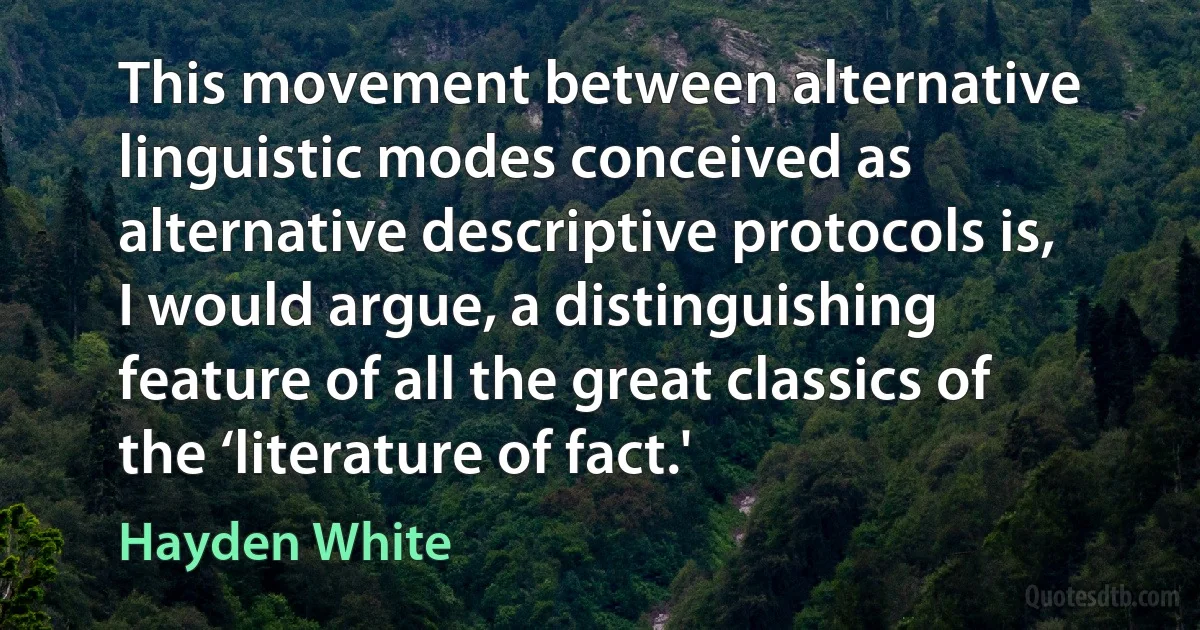Hayden White quotes
Hayden White was an influential American historian and literary theorist, best known for his work on historiography and narrative. His groundbreaking book "Metahistory" challenged traditional approaches to interpreting historical events. He profoundly shaped the way scholars think about history as a form of narrative construction. Here are 6 of his quotes:
Now, I want to make clear that I am myself using these terms as metaphors for the different ways we construe fields or sets of phenomena in order to ‘work them up' into possible objects of narrative representation and discursive analysis. Anyone who originally encodes the world in the mode of metaphor, will be included to decode it – that is, narratively ‘explicate' and discursively analyze it – as a congeries of individualities.

Hayden White
What is at issue here is not: What are the facts? but rather: How are the facts to be described in order to sanction one mode of explaining them rather than another? Some historians will insist that history cannot become a science until it finds the technical terminology adequate to the correct characterization of its objects of study, in the way that physics did in the calculus and chemistry did in the periodic tables. Such is the recommendation of Marxists, Positivists, Cliometricians, and so on. Others will continue to insist that the integrity of historiography depends on its use of ordinary language, its avoidance of jargon. These latter suppose that ordinary language is a safeguard against ideological deformations of the ‘facts.' What they fail to recognize is that ordinary language itself has its own forms of terminological determinism, represented by the figures of speech without which discourse itself is impossible.

Hayden White
Readers of histories and novels can hardly fail to be struck by their similarities. There are many histories that could pass for novels, and many novels that could pass for histories, considered in purely formal (or, I should say, formalist) terms. Viewed simply as verbal artifacts histories and novels are indistinguishable from one another. We cannot easily distinguish between them on formal grounds unless we approach them with specific preconceptions about the kinds of truths that each is supposed to deal in. But the aim of the writer of a novel must be the same as that of the writer of a history.

Hayden White
Historians are concerned with events which can be assigned to specific timespace locations, events which are (or were) in principle observable or perceivable, whereas imaginative writers – poets, novelists, playwrights – are concerned with both these kinds of events and imagined, hypothetical, or invented ones.

Hayden White
In fact, I would argue that these mythic modes are more easily identifiable in historiographical than they are in ‘literary' texts. For historians usually work with much less linguistic(and therefore less poetic) self-consciousness than writers of fiction do. They tend to treat language as a transparent vehicle of representation that brings no cognitive baggage of its own into the discourse.

Hayden White
Hayden White
Occupation: American HistorianBorn: July 12, 1928
Died: March 5, 2018
Quotes count: 6
Wikipedia: Hayden White

